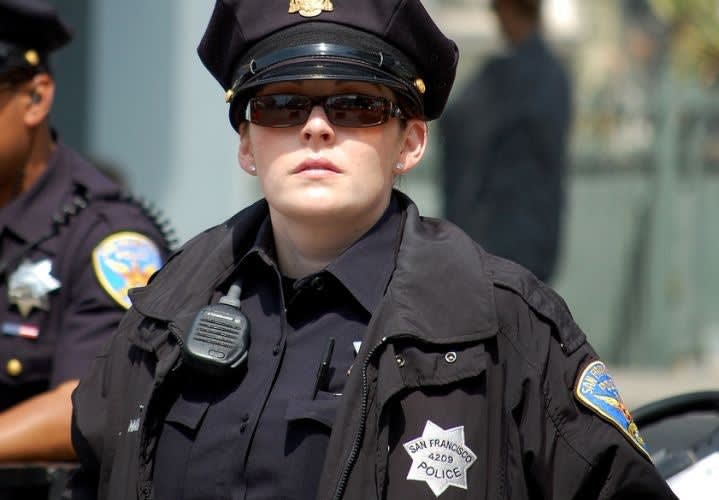As police officers we are trained to be observers. Early in the academy we are grilled on being aware of our physical location. This is important for many obvious reasons. We are trained to be aware of our backdrop in every situation to scan for threats or in case we suddenly need to draw our weapon and shoot. Awareness is perhaps the most important skill needed to perform the duties of a police officer.
Being a female officer, and a smaller one at that, I have often wished I was taller knowing that most of the people I deal with on the street are taller and heavier than me. I have never felt the need to prove myself physically though, because when the time comes to show what you have, it has always been a matter of gaining and keeping control of a situation for everyone's safety.
It wasn't until someone pointed it out to me that I realized I walk and carry myself very differently when I am in uniform than I do when I am in my civilian clothes. Maybe it is because in my civilian clothes I love to dress very femininely in high heels and pretty dresses.
Once I put my uniform on, I am out to take care of business. I carry myself in a manner that says, "Don't mess with me. I am in charge. I am here to help."
When children play and pretend to be adults, they put "serious" adult expressions on their faces. Officers put on their "officer personalities" when they put on their uniforms. This is an important quality to have as an officer.
Awareness on our jobs requires us to be in a different state of mind while at work than we might be while sitting at a sidewalk cafe people watching on a day off. Using our skills and resources to the best of our abilities as female officers, no matter what our statures are, can be our best assets.
We were not hired to prove ourselves physically to anyone; we were hired to do the best we can with all we have.













